Pregúntale a los Expertos: Cómo Controlar la Diabetes para Reducir el Riesgo de Cardiopatías, Accidentes Cerebrovasculares y Enfermedades Renales
Tuesday, September 26, 2023
Watch the Video
Aprenda sobre la relación entre la diabetes, el corazón y los riñones. Discutiremos los factores clave del estilo de vida y el manejo de enfermedades que pueden ayudarlo a vivir su mejor vida.
Now What? Life After Diabetes Complications
Tuesday, July 11, 2023
Watch the Video
How to Prevent and Treat Kidney Disease
Tuesday, March 14, 2023
Watch the Video
1 in 3 people with chronic kidney disease (CKD) has diabetes. Are you at risk? Learn the stages of kidney disease and what you can do to prevent or avoid future kidney damage.
Managing Your Blood Pressure May Help Preserve Your Heart and Kidneys
Tuesday, May 9, 2023
Watch the Video
If you have diabetes, it may be time to start regularly monitoring your blood pressure and blood glucose (blood sugar). Hear from our experts on how blood pressure management can help prevent heart disease, stroke, and kidney disease for people with diabetes.
Glossary
Do you ever get lost when you’re talking to your doctor because you don’t know the words being used?
Sometimes your doctor or other members of your health care team may use words you aren’t familiar with or that you’ve heard but don’t quite understand. If you feel confused about something your doctor is telling you, ask for it to be explained. Even with answers, you may still feel confused or uncertain about what you need to do following your visit.
We want to help you get the most out of your visit, so we’ve pulled together some commonly used terms your doctor might use when explaining how to better manage your diabetes and risk for heart disease and stroke:
- A1C—An A1C blood test can be used to diagnose diabetes or identify prediabetes. It is also used to check how your diabetes treatment is working over time. This relatively simple blood test tells you your average blood sugar (also called blood glucose) level over the past two to three months. A higher level can tell you if you have diabetes or prediabetes and, if you have diabetes, how your treatment is working. If your A1C is higher than your targets, it raises your risk of developing complications. The goal for most adults with diabetes is an A1C less than 7%. Usually your doctor will order this test twice a year or more often, if needed.
- Albumin—Albumin is a protein made by your liver that helps keep fluid in your bloodstream, so it doesn’t leak into other tissues. It also carries various substances throughout your body, including hormones, vitamins, and enzymes. Low albumin levels may lead to fluid retention, and can indicate a problem with your liver or kidneys.
- Antihyperglycemic agents—Antihyperglycemic agents lower your blood sugar levels. They can be taken as pills or injected and are used in the treatment of type 2 diabetes. For many people metformin is the first medication prescribed. Some antihyperglycemic agents, GLP-1s and SGLT-2s, have benefits for your heart and kidneys as well.
- Blood glucose—Blood glucose, or more commonly called blood sugar, is found in the blood and is the body’s main source of energy. If you have diabetes, your body has trouble processing blood sugar. There are a variety of ways to check your blood sugar levels, which tell you if you have diabetes or how your treatment is working if you have diabetes.
- Body mass index—Body mass index (BMI) is a measure of your body weight relative to your height. BMI, along with other measurements such as waist-to-hip ratio, can be used to help decide whether a person is underweight, normal weight, overweight, or obese.
- Glomerular filtration rate (GFR)—A glomerular filtration rate is a test used to check how well your kidneys are working. Specifically, it estimates how much blood passes through the glomeruli each minute. Glomeruli are the tiny filters in the kidneys that filter waste from the blood. A blood sample is sent to a lab where the creatinine level in the blood sample is tested. Creatinine is a chemical waste product of creatine—a chemical the body makes to supply energy, mainly to the muscles.
- Hyperlipidemia—Hyperlipidemia is when the fat (triglyceride) and cholesterol (total cholesterol and/or LDL cholesterol) levels in your blood are too high.
- Hypertension (high blood pressure)—Hypertension occurs when blood flows through the blood vessels with a force greater than normal. The extra pressure can strain your heart, damage blood vessels, and increase the risk of heart attack, stroke, kidney problems, and death. The goal for most adults is less than 120/80. Your doctor will give you a target that’s right for you.
- Hypoglycemia (low blood sugar)—Hypoglycemia when your blood sugar is lower than normal (less than 70 mg/dL). Signs include if you’re hungry, nervous, shaky, sweating, dizzy, light-headed, sleepy, or confused. If left untreated, it may lead to more serious complications, like losing consciousness. Hypoglycemia is treated by eating a food that’s a source of carbohydrate that will be processed by your body quickly, such as glucose tablets or juice. Severe hypoglycemia, where a person can’t speak or swallow, is treated with glucagon—either injected or inhaled—if the person is unconscious or unable to swallow.
- Hyperglycemia (high blood sugar)—Hyperglycemia is when your blood sugar levels are above normal.
- Insulin—Insulin is a hormone produced by the pancreas that helps your body use glucose for energy. If your body cannot make enough insulin and other medications aren’t helping you reach your blood glucose targets, insulin may be prescribed. Insulin is taken by injection or through use of an insulin pump.
- Titration—The amount of insulin a person with diabetes needs to take based on a variety of factors such as mealtime carbohydrate load, blood sugar levels, and exercise. For people starting insulin treatment, the initial dose is often relatively small and is increased over the course of the ensuing few days and weeks.
- Urine albumin-to-creatinine ratio (UACR)—Your urine albumin-to-creatinine ratio (UACR) shows whether you have albumin in your urine. Albumin is a type of protein that’s normally found in the blood, not in your urine. People with a high amount of albumin in their urine are at an increased risk of having chronic kidney disease which could progress to kidney failure. The UACR screening is a simple urine test that’s part of a routine exam.
Remember, it’s OK to ask your doctor to explain something in a different way. Have a question? Just ask. Your health care team is there for you.
3 Kidney-Related Questions to Ask Your Doctor if You Have Diabetes
Communication Is Important
Health care is a team effort and you play an important role. You can make sure you get the best possible care by talking with your doctor and asking questions.
Keep reading to learn why asking your doctor the right questions is an important part of your diabetes management.
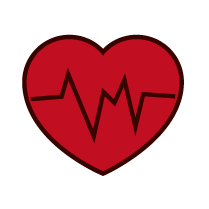
How Are the Heart, Kidneys and Diabetes Connected?
Your kidneys are powerful filters that remove toxins from your blood through your blood vessels (arteries, veins, and capillaries)—which are part of your cardiovascular system.
Type 2 diabetes can put a lot of stress on both your heart and in your kidneys. If you have type 2 diabetes and develop kidney disease, you’re at 3x higher risk of dying from a cardiovascular event like a heart attack or stroke. To stay healthy, it’s important for you and your doctor to manage your risk of both.
Asking questions about your diagnoses, treatments and medications is one of the best ways to lower your risk for diabetes-related complications like heart disease, stroke and kidney disease.
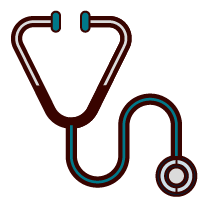
Preparing for Your Appointment
You can prepare for your appointment by thinking about what you want to do during your next visit.
Do you want to:
- Start or change a medicine?
- Get medical tests?
- Talk about lifestyle changes and treatment options?
Write down your questions in your phone or a notepad to help you feel prepared and less rushed during your appointment.
During Your Appointment To get the most from your visit, tell the nurse or person at the front desk that you have questions for your doctor. If your doctor does not ask if you have questions, ask your doctor when the best time would be to ask them. Start by asking the ones that are most important to you.
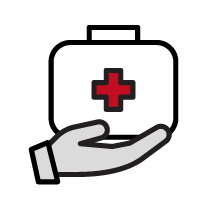
3 Kidney-Related Questions to Ask Your Doctor if You Have Diabetes
Asking questions is important but so is making sure you hear—and understand—the answers you get. Take notes or ask to record them on your phone or another device. If you want to bring someone to your appointment to help you understand and remember what you heard, call and ask the doctor’s office ahead of time if that’s okay. If you don’t understand or are confused, ask your doctor to explain the answer again.
3 Questions to Prevent Kidney Disease
- Have I received my annual urine albumin-creatinine ratio (UACR) screening?
- What signs or symptoms of kidney disease should I be aware of?
- How do I take care of my kidneys and reduce my risk for heart disease and stroke?
It is very important to understand the next steps your doctor recommends. Ask more questions, if you need to, and make sure you know what your doctor wants you to do. Asking for written instructions, brochures, videos, or websites may also help you learn more.

Understand the Answers and Next Steps
After you meet with your doctor, you will need to follow the instructions to keep your health on track. You may need to follow up on your care and call your doctor. Call your doctor if:
- You have side effects or problems with your medications.
- Your symptoms get worse after your appointment.
- You get new prescriptions from other members of your health care team or start taking any over-the-counter medicines.
- You need the results of any tests you’ve had. Don’t assume that no news is good news—be proactive.
- You don’t understand your test results.
Asking questions can help your health care team learn more about you. Their answers can help you make better decisions, receive a higher level of care, prevent symptomless diabetes-related complications like kidney disease and feel better about the care you receive.
If you have diabetes, good communication with your health care team is key. There are questions you can ask to reduce your risk of kidney disease, heart disease and stroke. Talk to your doctor, be curious and, most importantly, make sure you understand the answers.
5 Steps to Preventing Kidney Disease Before It Starts
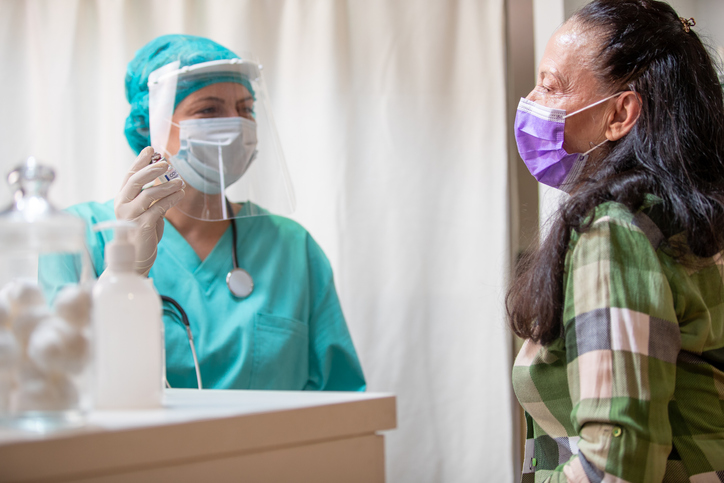
You may have heard if you have type 2 diabetes, you have an increased risk of kidney disease, often called chronic kidney disease or CKD. Here, we explain what you need to know about preventing kidney disease, how your heart and kidney health is connected and the role of regular screenings. Read on to learn how to take care of your kidneys and lower the risk for heart disease when living with diabetes.
What Causes Kidney Failure?
To understand what causes kidney failure, it’s important to understand how healthy kidneys function and what purpose they serve.
The kidneys are amazing organs that work hard to filter our body’s blood. With thousands of tiny blood vessels, our kidneys act as a full-body filtration system. They separate waste products from essential substances like protein and red blood cells in the body.
Kidney failure occurs when this system breaks down and useful bodily substances, like protein, are unintentionally expelled. Protein is necessary for the body’s tissues and organs—and we need it to survive. When the filtering system is in the early stages of protein loss, it is called microalbuminuria. More extensive breakdown is known as macroalbuminuria.
Thankfully, you can test kidney function to find out about problems early—and make changes to prevent kidney disease with a simple screening.
How Are the Heart, Kidneys and Diabetes Connected?
Your kidneys are part of your cardiovascular system and type 2 diabetes can put a lot of stress on both your heart and your kidneys. To stay healthy, it’s important for you and your doctor to keep tabs on your risk for problems in both your heart and kidneys and to take care of problems you may have.
What Is a UACR Screening?
Our bodies need protein to build muscle, fix tissue and fight infection. But it should be in the blood, not urine, where protein is lost if you have kidney damage. People with a high amount of protein (albumin) in their urine have an increased risk of kidney disease. In these cases, dialysis may be needed to survive. The urine albumin-to-creatinine ratio (UACR) is a simple test that shows whether albumin is present in the urine.
A UACR test can be an early sign of kidney damage and should be part of your annual screenings if you are a person with type 2 diabetes.
What are the Symptoms of CKD?
If you have had diabetes for many years, you could have kidney damage and not even know. High blood glucose (blood sugar), high blood pressure and diabetes-related complications contribute to kidney disease.
Unfortunately, recognizing early-stage kidney disease by checking for symptoms is usually not possible. This is because our kidneys will overwork themselves to make up for the early damage, and you may not have symptoms until nearly all function is gone. Any symptoms you may have wouldn’t make you think it’s kidney disease. This is why it is so important to see your doctor regularly and get checked, annually.
Does Everyone With Diabetes Develop Kidney Disease?
Many people ask if being diagnosed with diabetes automatically means they’ll struggle with kidney disease, and the answer is no. Factors that can influence kidney disease development include genetics, long-term high blood glucose and high blood pressure.
It is important to see your doctor regularly and maintain an ongoing conversation about your health. The better you’re able to keep your diabetes and blood pressure under control, the lower your chance of getting kidney disease. When you schedule a UACR screening, your doctor will check your blood pressure, your urine protein ratios and talk with you about lifestyle prevention steps.
What can I do for Prevention?
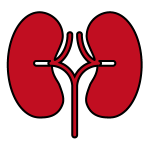
1. Understand risk factors
When you’re living with diabetes, high blood glucose levels can cause your kidneys to work harder. Over time, kidney failure is more likely to occur.

2. Be Proactive
If you develop kidney disease, it is likely that you’ll have little to no symptoms until almost all function is gone. Have a discussion with your doctor about how to protect your heart and kidneys. Regular UACR screenings are key to early detection. When kidney disease is diagnosed early, several treatments may keep it from getting worse.

3. Manage your blood sugar and blood pressure to keep them in your target range
Blood sugar management can reduce the risk of early-stage kidney failure by one-third and may reduce the risk of early stages of kidney disease to more severe kidney disease by half. Some studies have shown tight management can even reverse the early stages.

4. Talk to your your health care team about any special needs you may have
Some treatments used may limit certain types of foods you eat. Always talk with your health care team before changing your diet.
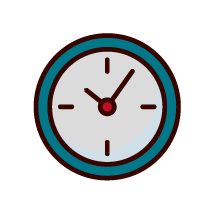
5. Get regular screenings
Ask your doctor for a UACR screening once a year if they haven’t scheduled one. This simple urine test is often overlooked but can mean the difference between staying healthy and avoiding dialysis. Your doctor can check your blood pressure, eGFR (estimated glomerular filtration rate), urine protein ratios and talk with you about lifestyle prevention steps.
If you have diabetes, there are simple, preventative steps you can take to lower your risk of heart disease. Talk to your doctor about how to keep your heart healthy and about getting regular UACR screenings to help you understand the health of your kidneys.
Diabetes, Your Heart and Kidneys: A Triangle of Risk
With T2D, your risks for developing heart disease and chronic kidney disease (CKD) are also elevated. Diabetes is linked to both and recent studies have shown that medications for diabetes can also improve outcomes for heart and kidney health.

The Connection Between Diabetes, Kidney Disease and Your Heart
You may not think of your kidneys and heart as a connected system, but they are. How? Your kidneys are powerful filters that remove toxins from your blood, which is moved through your body through blood vessels—a complex network of arteries, veins and capillaries—which is part of your cardiovascular system.
Type 2 diabetes can put a lot of stress on both your heart and your kidneys. To stay healthy, it’s important for you and your doctor to keep tabs on your risk for problems in both your heart and kidneys and to take care of problems you may have.
But this is good news—with the right care plan, you can manage type 2 diabetes, heart disease and kidney disease all at once. What’s good for your heart is also good for your kidneys. Recent studies have also shown that some medications for diabetes can also improve outcomes for heart and kidney health.
What are my Risks of Developing Kidney Disease?
When you manage your diabetes, you also manage your risk of heart disease and kidney disease. Remember, diabetes and cardiovascular and kidney risks are all connected to each other. Talk to your doctor about reducing your risk. Research shows that:
- Approximately one-third of people with diabetes may have kidney disease.
- Diabetes can damage blood vessels in your kidneys, which can eventually lead to CKD and, over time, kidney failure.
- High blood pressure can worsen kidney damage and raise your risk for heart attack and stroke.
The Right Plan, The Best Support
If you have diabetes, it’s normal to feel overwhelmed at times. But when it comes to your health, remember that you’re in the driver’s seat. Make healthy changes today that can have a positive impact on your body and your future.
Try one or more of these tips to get started:
- At your next appointment, ask your doctor if your diabetes is affecting your kidney function.
- Keep your blood glucose (blood sugar), cholesterol and blood pressure to reach your target ranges.
- Have a healthy, balanced eating plan.
- Move more with daily exercise. The goal is 150 active minutes per week. This can be split into chunks throughout the week and throughout your day, any movement counts!
- Take your medications as prescribed. Talk to your doctor if you have side effects that impact you.
- Keep your entire health care team updated with your treatment plan (including your cardiologist and endocrinologist).
- Stay positive and be an active member of your health care team
One of the most important things to keep in mind is that everyone’s health journey is different, especially with type 2 diabetes. You may have some days where it feels like it’s more difficult to manage or some days where it’s easier. But your efforts do make a difference! Ultimately, what matters is making progress toward your goals.
More Help for Managing Diabetes and Kidney Disease
If you need an extra boost in the support department, join the Know Diabetes By Heart™ initiative. The American Heart Association and American Diabetes Association have teamed up to bring you the best science-backed tips, tools and other resources for people living with type 2 diabetes along with expert advice on managing your risks.
Here’s a resource to keep with you and keep you motivated: Heart Health: The link between Type 2 Diabetes and Chronic Kidney Disease.
Related Resources
5 Steps to Preventing Kidney Disease Before It Starts
You may have heard if you have type 2 diabetes, you have an increased risk of kidney disease, often called…

3 Kidney-Related Questions to Ask Your Doctor if You Have Diabetes
Health care is a team effort and you play an important role. You can make sure you get the best possible care by talking with…





